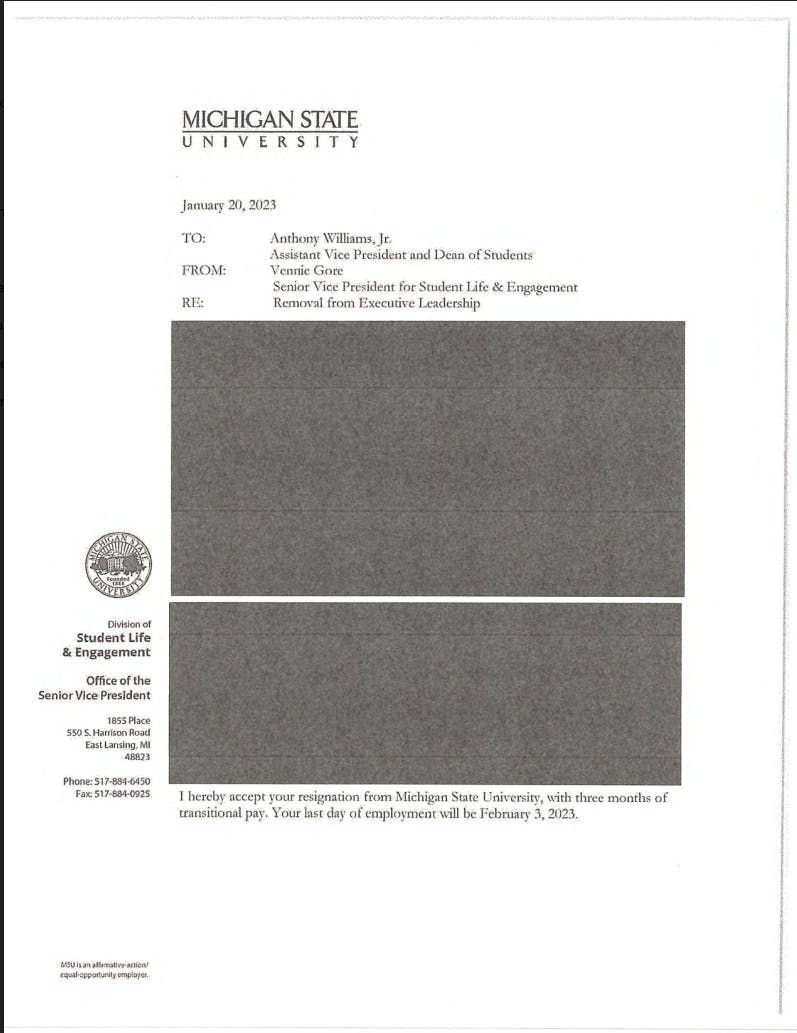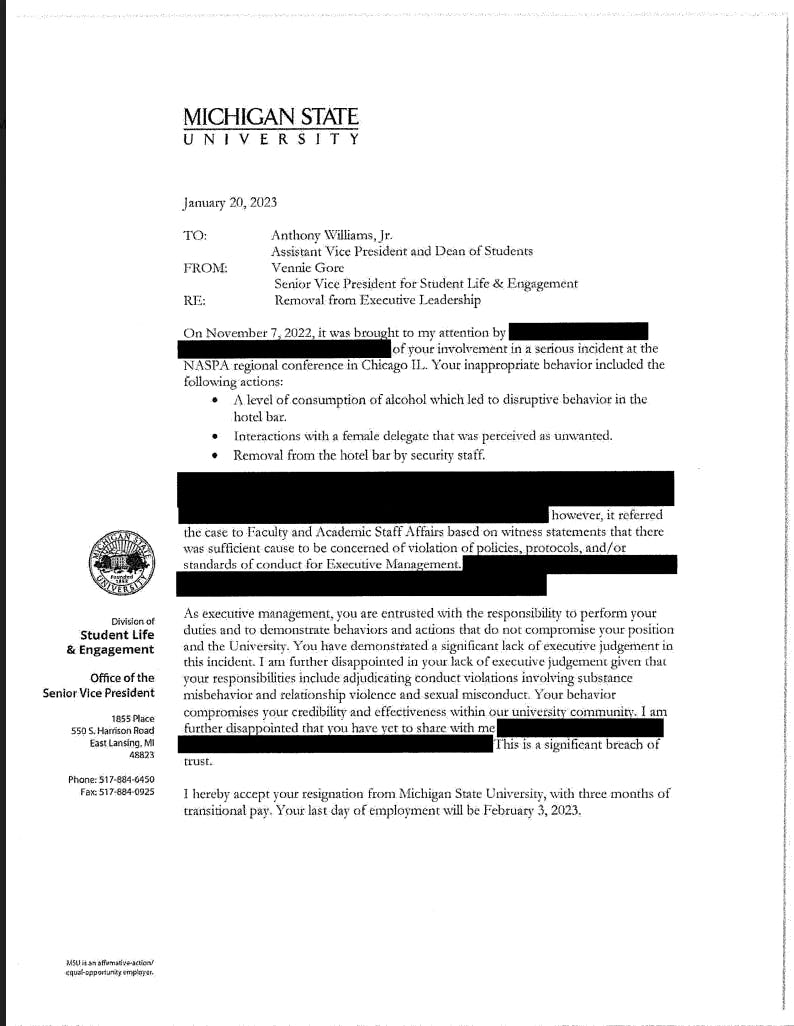Michigan State University Dean of Students Anthony Williams Jr. voluntarily resigned in February. He received three months of “transitional pay” and told staff that he chose to leave because he was a finalist in a closed-search at another institution.
But Williams’ exit was spurred by his “inappropriate behavior” while at the National Association of Student Personnel Administrators’ regional conference in Chicago, Illinois in November of 2022, according to records obtained by The State News, which were initially withheld by MSU.
Williams is the second high-profile MSU administrator to be allowed to enter into a voluntary resignation agreement following issues with MSU’s policy on Relationship Violence and Sexual Misconduct this academic year. In August 2022, then-business college dean Sanjay Gupta was asked to resign for failing to report an incident of misconduct by a member of his staff.
While at a hotel bar, Williams engaged in a “level of consumption of alcohol which led to disruptive behavior,” and had “interactions with a female delegate that was perceived as unwanted.” Williams was removed by “security staff,” according to a letter from Williams’ supervisor, which cited witness interviews conducted by MSU Human Resources.
The letter, authored by Vice President of Student Life and Engagement Vennie Gore, said Williams’ conduct was especially disappointing given his responsibilities with reporting and regulating substance use and sexual misconduct amongst the students he oversaw at MSU. Gore wrote the behavior “compromises (Williams’) credibility and effectiveness.”
Nonetheless, Williams entered into a voluntary resignation agreement with MSU. Gore declined The State News’ request for an interview regarding why he chose to let Williams’ resign instead of opting for termination.
The resignation agreement between Williams and MSU asked that he would voluntarily resign on Feb. 3 with the following conditions:
- Benefits: MSU would provide him with three months of transitional pay. According to MSU’s HR policy, Williams would not be entitled to that benefit had he been terminated for his misconduct instead of being asked to resign.
- Rights: Williams would waive all rights to sue or in any way “grieve” the university regarding his employment.
- Confidentiality: Williams would not be permitted to share the agreement or the contents of the agreement with anyone other than his financial advisors, legal representatives, or immediate family.
After his resignation was announced but not explained to his staff, Williams sent them an email apologizing for the department’s “abrupt announcement.” He wrote it was “my decision to resign, and I did so for personal and professional reasons.”
Williams then provided an explanation, writing “I am in the process of pursuing a new opportunity outside of MSU. I am a finalist in a closed search that is coming to an end.”
University spokesperson Emily Guerrant could not confirm whether there was a real closed-search involving Williams. None of the documents obtained by The State News made reference to one.
The only response to Williams' explanation came from MSU Director of Fraternity and Sorority Life ShirDonna Lawrence, who wrote that she had “never felt more supported, heard, or seen by a supervisor,” and pasted a copy of the Robert Frost poem “The Road Not Taken,” according to a copy of the email obtained by The State News.
All of Williams’ direct subordinates either did not return requests for an interview, or referred The State News to Gore, who declined to comment.
MSU’s Freedom of Information Act, or FOIA, office initially heavily redacted records of Williams’ misconduct, using an improper application of one of the FOIA statute’s exemptions.

The State News appealed that determination, arguing MSU is not entitled to secrecy in employment decisions. In response, the university released another version of the letter to The State News which was less redacted.
“The public’s interest in disclosure outweighs any privacy interest by the employee,” the university’s response, authored by Interim President Teresa Woodruff said.
The university did deny The State News’ request for the letter’s full contents. It argued that remaining portions of the letter fall under another FOIA exemption which protects “non-factual,” and “preliminary advisory,” determinations made within public bodies like MSU.

The letter accepting Williams' after an appeal to previous redactions by The State News.
The remaining redactions include part of sentences describing who alerted the administration to Williams’ conduct at the conference. There is also a redaction obscuring another concern Gore held.
“I am further disappointed that you have yet to share with me (redacted) this is a significant breach of trust,” the letter says.







